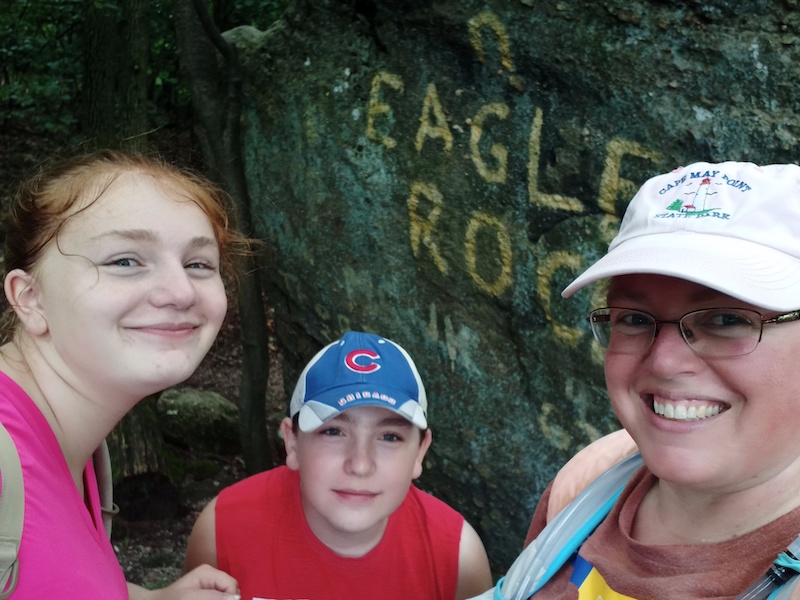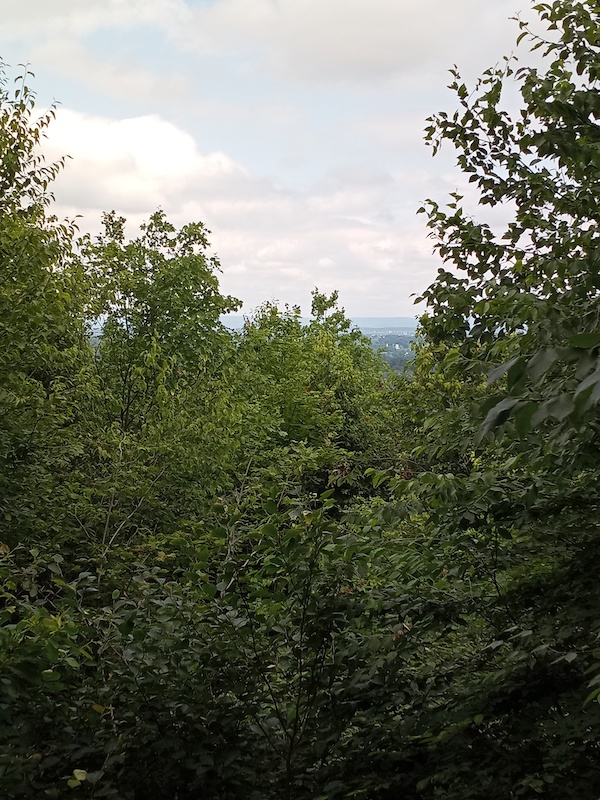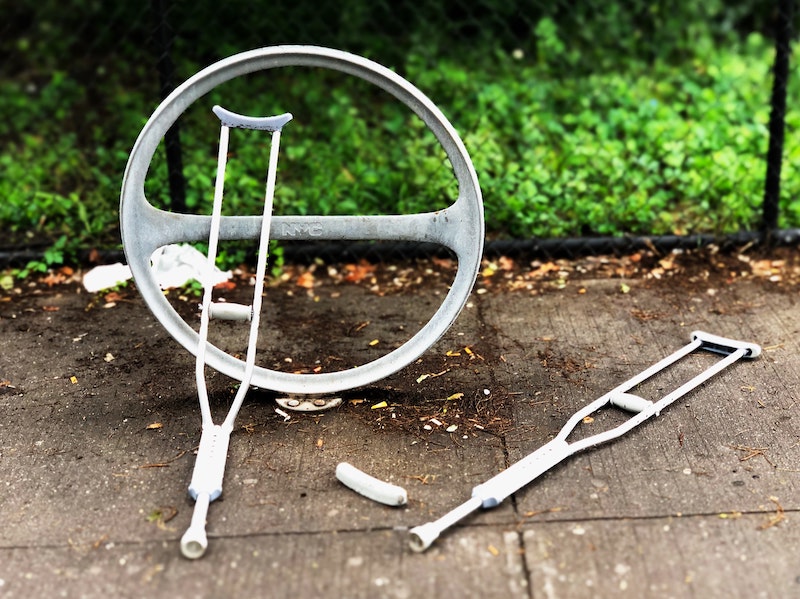New experiences cause me to have anxiety. Actually, I’m not even sure that’s entirely accurate. I’m pretty sure I always have anxiety, it’s just sometimes I’m more aware of it than others. New experiences make me feel the weight of anxiety more than familiar experiences.
The church we’ve been attending has been organizing summer hikes once a month from May to August. The kids and I went to the first one (when we were still strangers to the church) and missed the second one for my grandmother’s funeral. The third one was rapidly approaching and I was feeling a whole bunch of feelings: nervous, excited, anxious, stressed. The hike was scheduled for a trail I’d never been to in an area about 30 minutes from our house. When it comes to hiking, I’m not new, but most of my hiking I’ve done with Phil. I’m not sure I’ve ever done much of it just me and the kids.
This was my first point of anxiety. Phil is much more level-headed about outdoorsy stuff than I am. I’m usually okay once I get out there in the woods and nature because it feeds my soul to be among the trees, but it’s the getting there that almost paralyzes me. I worry about injuries and getting lost and peeing in the woods. I worry about where to park if the trailhead is busy. Phil, if he worries about any of these things, doesn’t show it. He is calm and collected and handles the unexpected in a way that grounds me. But Phil works on Saturdays and these hikes are on Saturdays, so I was on my own with the kids.
And speaking of kids, sometimes they gripe about going hiking. They ask about how far the hike is and how long we’ll be gone and if there will be bees. The night before this most recent hike, it rained hard and I warned them: it might be muddy, so plan for that. I am not a great motivator for getting people out of the house when I am weighed down my own anxiety, so I thought it was possible that I would just say “forget it” and we’d stay home.
To lessen the anxiety, I try to get as much information as possible. This hike was supposed to be moderate with a steep incline to the top, so I checked my hiking app and read the comments and reviews to see just how steep and incline-y this trail would be. Phil and I once underestimated the designation “very steep” on a hike not long after we’d moved to Pennsylvania. Illinois “steep” and Pennsylvania “steep” are two very different things.
I didn’t find exactly what I was looking for, but I did find two interesting comments:
“Eagle Rock is neat but not particularly scenic.”
“Was disappointed with the view from the top, as it was covered by trees.”
This reminded me of the one-star reviews of National Parks I saw while scrolling social media sometime ago.
And as we hiked the trail (yes, we made it to the meet-up and yes, we had a good time), I thought about that latter comment especially.

Is the view from the top the only reason we climb the mountain?
—
For the second year in a row, I’ve participated in a fitness and nutrition community/program called My Peak Challenge. If you’re a fan of the Outlander TV show, My Peak Challenge was founded by Sam Heughan, and what attracted me to the community and program was the personal nature of the goals and the program. (Also part of the annual fee goes to charity, which is a win, even I don’t use the program at all.) Peakers, as participants are called, are encouraged to “Find Your Peak,” be it a physical goal or a non-physical goal. Sometimes the goal is learning a language or going back to school; sometimes it’s about losing weight or climbing a literal mountain. Sometimes it’s about acquiring a new skill or abandoning something that isn’t life-giving. There are as many challenges as there are Peakers (so, thousands) and it’s inspiring to see people reach their goals and find their peaks.
I consider myself a bit of a slacker when it comes to goal-setting. I don’t like to commit to goals because I’m afraid I won’t reach them. (On the other hand, if I never set goals, I’ll certainly never reach them!) I’m learning that the failure isn’t in not reaching the goal but in not setting the goal in the first place. Progress toward a goal is not wasted effort. There are things to be learned along the way.
This is me preaching to myself, by the way. I’m feeling this tension most deeply in my writing life right now. I am still a writer but I’m not doing as much writing as I think I should be doing, and my writing goals are not particularly ambitious or challenging. Writing is my mountain and sometimes I fear 1) that I won’t make it to the top and 2) that I won’t like the view once I get there.
So I’ll ask myself again: Is the view from the top the only reason we climb the mountain?
—
The reviewers were right. The view from the top of this particular trail was not stunning or breathtaking. We could see a little bit of farmland through the trees but mostly the view was the trees right in front of us.
Did that mean the previous hour of hiking was worthless?
Far from it. On the way up our lungs expanded and our legs burned as we traveled up the incline. We talked with those who were on the journey with us (and some who were not; we helped direct a family on the right path that their oldest son, who was far ahead of them, had taken). We tripped and consoled and kept going. We raced ahead and we lagged behind. We stepped on every rock on the path. We stopped to catch our breath.
And on the way down, we talked like old friends. Some of the kids got far ahead of the grown-ups but they were having their own great time. The time passed as if it was no time at all and by the time we were at the bottom, no one was talking about how mediocre the view had been.
All we could do was bask in the togetherness as we gobbled our packed lunches while giving our legs a rest.
“That was so much fun,” my kids both said in the car on the way home.
The view, it would seem, was not the point of the hike.
—
At the top of a mountain or rolling hill, the view might be amazing. It might take your breath away.
Or the clouds might hang low and block the view. Or the trees might be growing right where you’re supposed to be looking.
Or maybe you don’t make it to the top and have to turn around before you even get there.
Maybe the top of the mountain is crowded and you can’t enjoy the view, even if you can see it. Maybe someone has graffitied the rock or left some trash. Maybe it’s not what you expected at all.
Maybe it’s beautiful.
Maybe it’s mundane.
But was the climb still worth it?
(To quote a Miley Cyrus song, “Ain’t about how fast I get there, ain’t about what’s waiting on the other side, it’s the climb.”)
What if the climb is the whole point?
—
On that Saturday hike, the talking, the being in nature, the exercise of our bodies was the point of the hike, not the view we would see from the top.
With my writing, maybe the end goal isn’t the point, exactly. Maybe it’s more important what happens along the way.
Maybe the view from the top is only one of the reasons we climb the mountain.
Maybe we climb the mountain to see if we can.
Or prove that we can.
Maybe we climb the mountain to restore our souls with the sights and sounds of nature.
Maybe we climb the mountain because it makes for a good story. Or a picture for our Instagram.
Maybe we climb the mountain to spend time with friends or family.
Maybe we climb the mountain to strengthen our legs or our lungs.
Maybe we climb the mountain because it’s there to be climbed.
Maybe we climb the mountain because we can’t imagine not climbing it.
Because we have to. Or need to. Or just plain want to.
Even if we climb it just for the view from the top, we have to accept that we can’t stay there at the top. Eventually we have to come down. And maybe the view at the bottom isn’t the same as the view from the top.
But then again, neither are we the same.
The person who went up the mountain is not the same as the person who came down.
Maybe that’s the whole point of the climb.



